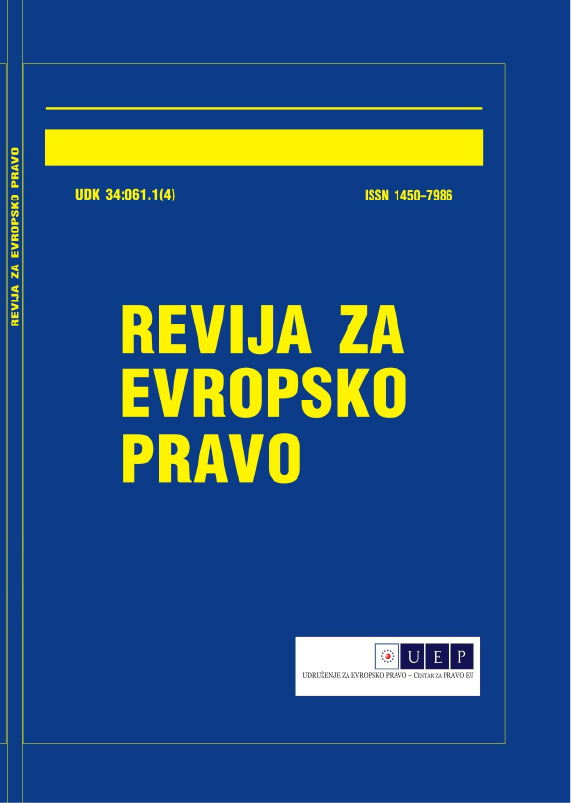Republika Severna Makedonija kao studija slučaja za međunarodne eksperimente: igra bez kraja
The Republic of North Macedonia as case study for international experiments: a never-ending game
Author(s): Ivica Josifović, Igor KambovskiSubject(s): International Law, EU-Approach / EU-Accession / EU-Development
Published by: Удружење за европско право - Центар за право Европске уније
Keywords: Macedonia; membership; European Union; law and politics; dispute
Summary/Abstract: Macedonia is a country that is open to experimentation with the policies of the international community. No other country has faced such problems, which are incomprehensible and difficult to solve for the majority. There is no country that had such a difficult process of international recognition, a country that signed an interim agreement on a bilateral dispute, a country that signed the Stabilization and Association Agreement during the conflict in 2001, a country that has been a candidate for EU membership since 2004, a country that in 2008, Greece vetoed NATO membership, a country that changed its name, a country that was denied the right to self-determination, a country whose language, history and culture were contested, etc. When we thought it was over and that we would finally be able to start the path of European integration, North Macedonia encountered new unrealistic demands. Another possible setback in EU integration can be attributed to Bulgaria, which pursues a policy of denying the Macedonian language, history and culture, and which has demanded that the Bulgarian minority be included in the Macedonian constitution but has not offered a reciprocal provision in the Bulgarian constitution for the Macedonian minority living in Bulgaria. Based on the experience and decision-making processes in the EU institutions related to enlargement, Macedonia will probably be under pressure to give up its state foundations in order to reach the ultimate goal – EU membership. The process of enlargement introduces new aspects to the process of political conditionality with the adoption of a complex mosaic of conditions, benchmarks and expectations. The EU’s policy towards Macedonia undermines the Union’s credibility as an actor that contributes to long-term stability and democratic standards. Instead of comprehensive solutions, including the unblocking of negotiations, the EU representatives proceeded to conclude emergency agreements whose implementation has been questioned since the beginning. The two “disputes” over the Macedonian identity are just two sides of the same coin. The history of international relations and international law knows no “disputes” of this kind, nor any that could be “resolved” in a legally correct way. The paper aims to present the legal issues related to these events, bearing in mind that most of them are resolved by the force of politics, and not by arguments and in accordance with the law, which can have serious consequences and lead to additional demands that cannot be fulfilled.
Journal: Revija za evropsko pravo
- Issue Year: 26/2024
- Issue No: 1
- Page Range: 7-25
- Page Count: 19
- Language: Serbian

